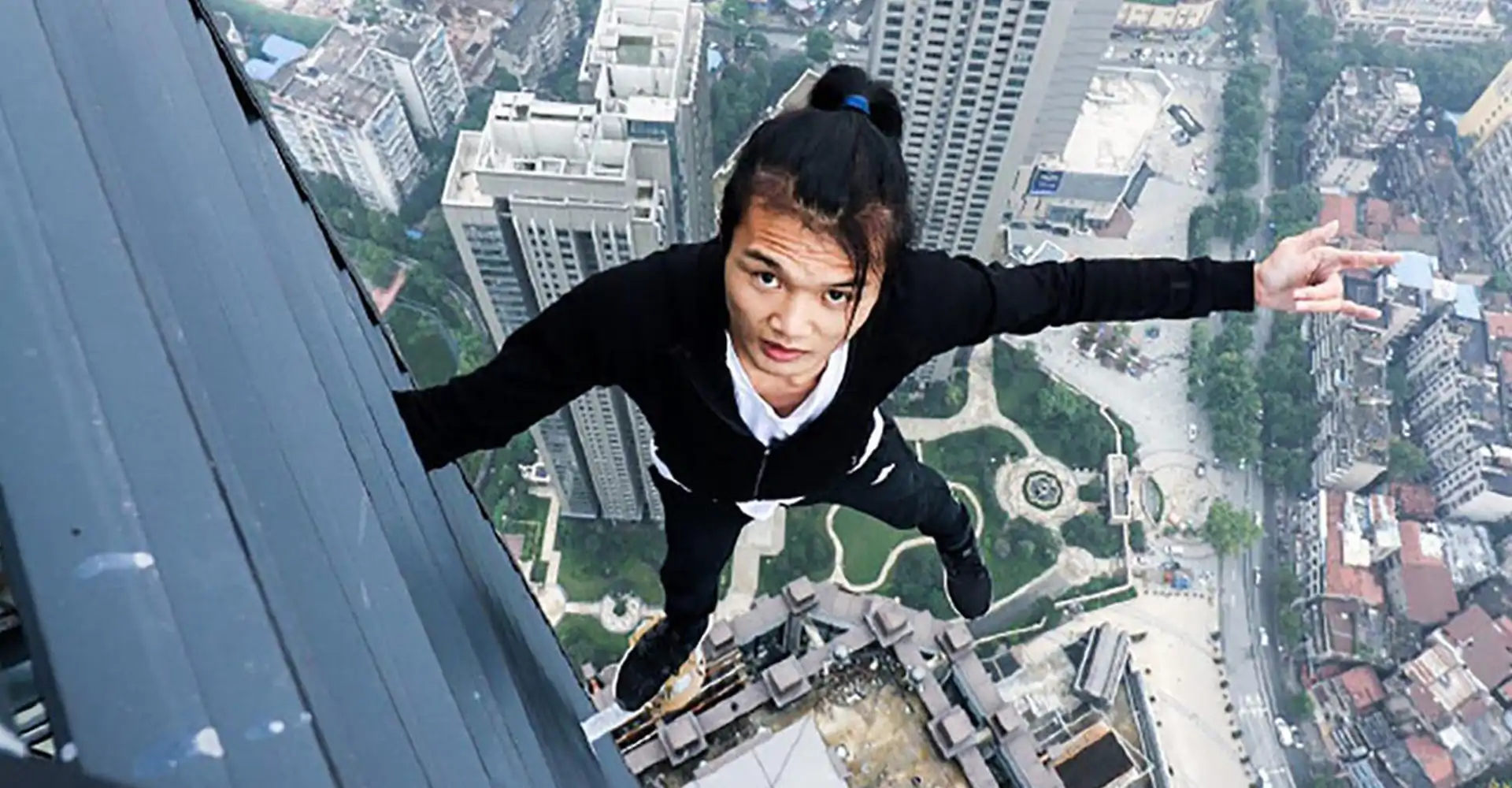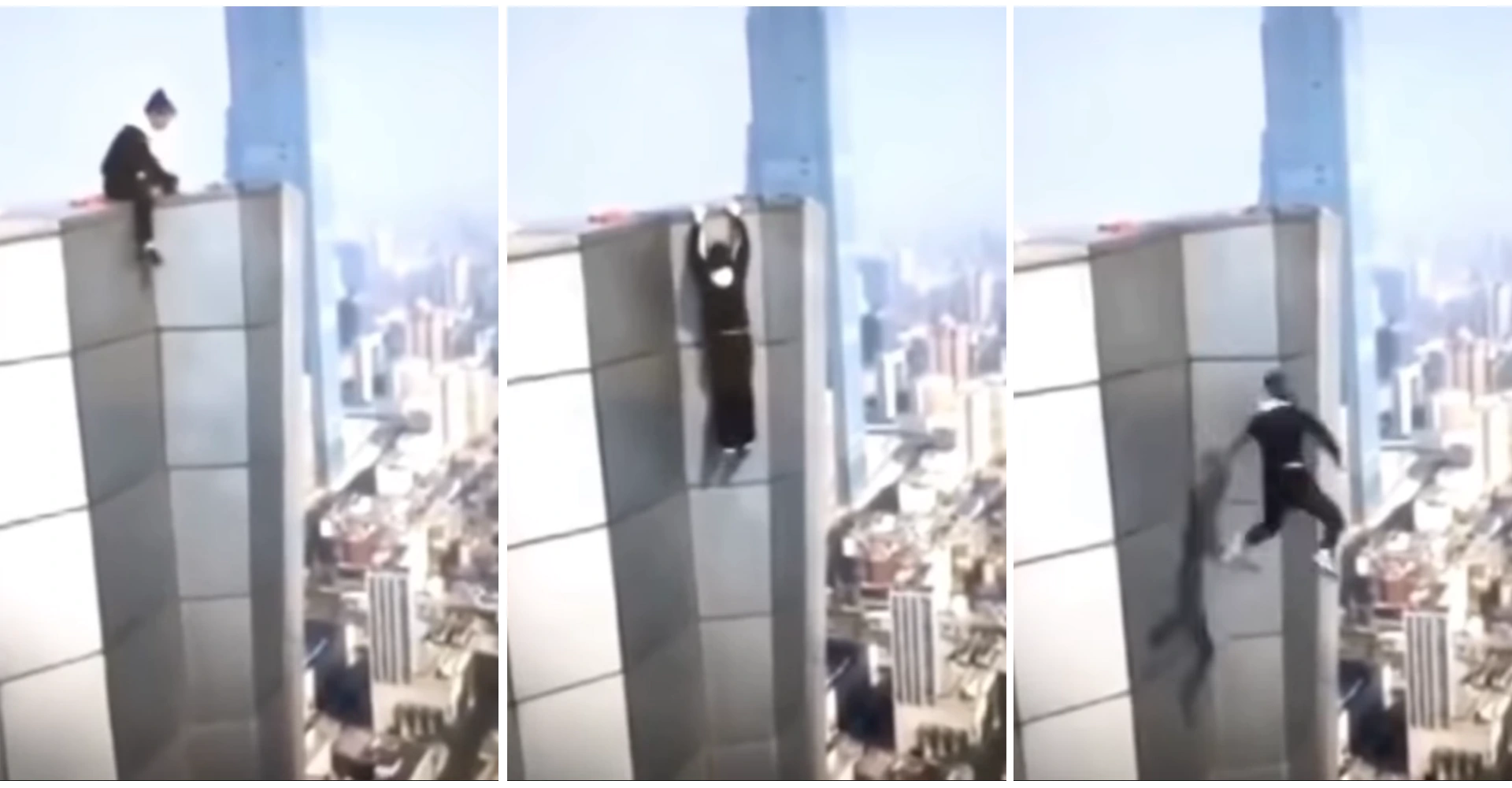People can have different hobbies. And sometimes, people can go to great length to enjoy what they like the most, and in order to earn money.
Wu Yongning was famously known as the rooftop daredevil.
And that is for a good reason: the Chinese is known to scale and climb tall buildings, and take jaw-dropping selfies.
But one day, Wu who climbed a 62-story skyscraper in Changsha, capital of Hunan province, fell from the building's roof, and plunged to his death. The incident happened in November 2017, and was caught on camera.
Following Wu's death, his family through Beijing Internet Court, sued several streaming apps that Wu used to promote his daring exploits, saying that they should bear "minor responsibility" for the accident,
And because of that, one Chinese live-streaming platform was ordered to pay ¥30,000 ($4,300) to Wu's family.
The Beijing-based company was partly responsible for its users’ safety, the court said.

Wu was born in 1991 in Hunan.
Wu worked as an extra in the film industry before making a living by rooftopping. Among his stunts, include standing on top of buildings and tall structures, or sometimes doing forward rolls, and dangling from the edges to do some pull-ups.
Places also include bridges, antenna and other precarious places.
And Wu here, was regarded among one of China's first rooftoppers.
With more than 1 million followers on live-streaming apps like Kwai, Meipai and Huoshan, he had uploaded hundreds of videos sharing his daredevil exploits across the country.
What made Wu on another level was that, he did his stunts never with safety equipment.
He once said that he only relied on his "martial arts training and careful planning," according to one of his posts on Weibo.
Wu loved what he did, and he did his job well, until one day he fell to his death.
It all began when his many followers started to worry when Wu stopped posting videos all of a sudden.
When people began speculating, it was only a few days later, that his death was confirmed, first by his girlfriend named only as "Jinjin", and then by the authorities.
A video was then shared and went viral on social media networks, showing a clip of what appeared to be Wu's final moments.
In the video, he was shown attempting to scale a building in Changsha city.
The clip showed Wu lowering himself over the edge of the building to do his iconic pull-ups.
At first attempt, he was able to climb back up and was seen cleaning the edge, in order to provide him a better grip.
In his second attempt, he was then seen struggling to hoist himself back up and eventually lost his grip and fell out of the view of the camera phone he had set up to record his stunt.
Without safety equipment or anything that can help him cushion his fall, Wu fell all 62 floors to the concrete down below.
His body was said to be discovered by a window cleaner.
His death immediately prompted the authorities to look for "cash for clips" on the internet. Questions were then asked whether platforms, and their viewers, are in some way responsible for his death.
After all, the platforms provided the place where Wu can earn money and profit as the middle-man, while the viewers were the ones who encouraged Wu to do his stunts.
Another way of saying this, the internet was "crowdfunding" Wu's death.
Wu did his stunts in an attempt to win a ¥100,000 prize. Reports said that he needed the money to pay for his wedding and help his sick mother.

The platforms Wu's family sued denied everything they were accused of.
While it was for certain that no one has ever forced Wu to scale this building or that structure, the public suggested that platforms and viewers should carry some responsibility.
The debate over viewers' complicity intensified as more people around the world also practice rooftopping and share their clips on social media.
While Wu was considered the first in China, he was not the first in the world. And his death will not stop existing rooftoppers from doing what they do, or prevent anyone from becoming a rootfopper in the first place.
But the question was particularly pointed in China, because livestreamers and viral video-makers can earn money from fans directly.
And in China, many people, Wu included, were benefiting from his billion-dollar internet video industry.
China may be infamous for its censorship and internet restrictions, but in the world of livestreams and short videos, that is a different matter.
"These kind of eyeball-grabbing livestreams should be cancelled," said one Weibo user, while another said: "Anything that parents wouldn't allow to be broadcast should be scrubbed."
While many expressed their condolences and sided by Wu's family, a number of internet users actually pushed back, and called that Wu's death would only make censorship even more tense in the bad way.
Further reading: Turkish Influencer Fell To Her Death From Istanbul Rooftop While Taking A Video For TikTok